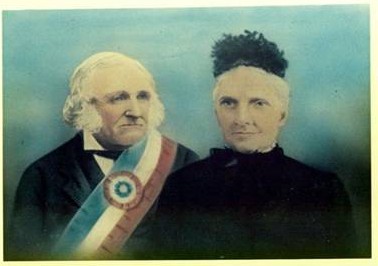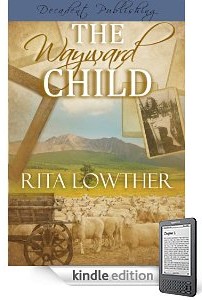Home | Pioneers | Contact Us | Copyright/Disclaimer
|
Home | Pioneers | Contact Us | Copyright/Disclaimer |
 |
|

It’s
not often that you get the unsullied memories of a child growing up in the
Australian countryside during the years of the Second World War published raw
and unvarnished over sixty years later.
A Wayward Child begins with Rita’s country girlhood in Tumut where her father
worked as a guard at the open prison farm. It describes the traumatic effects of
the Second World War years on her mind and on her family, and the harsh values
that informed a generation that was emotionally and intellectually starved. Rita
survived with those values. This is a testimony of how difficult it is for
precocious children to try to grasp problems that adults have difficulty in
grasping themselves – a situation not uncommon in the isolated communities of
the Australian country.
She has a writer’s eye for detail. Some of her descriptions are almost
Dickensian. A writerly touch is apparent in the last sentence of a paragraph
devoted to a magnificently detailed description of her grandfather and his
clothing: “I think I liked him most for the way he dressed…”
We get these flashes of ‘child’s eye views’ throughout the book, all the more
poignant for being written over sixty years later. And the wealth of iconic
Australiana (country meals, social settings) should be mined by any producer
worth his salt, of an Australian period film.
And just when you think this is a catalogue of social country life, with
schoolgirl tiffs and jealousies, Rita introduces her ‘imaginary friend’ Edna,
and the narrative of the Odyssey across the Australian countryside, when her
father is forced to seek work, first as a shearing supervisor, and then as a
rabbit trapper.
Over all this is the background of the Second World War. It looms over Rita’s
childhood, it is the trauma she sees as being to blame for hardship that hard
work and endurance could not prevent. The propaganda newsreels of the time had
her running out of the theatres in a panic that the Japanese were on our
doorstep, a constant state of childhood anxiety that voided her of any
compassion at an accidental sight of Japanese prisoners during a visit to
Sydney, and perhaps affords us a sympathetic glimpse of the roots of One Nation
xenophobia.
Synopsis : An era of Australian history that has been sadly neglected in the literary world. This story is about a country born child who lived through the rough and tumble of the WW11 years with all it's hardships. Only the older generation would know this history, and I feel this story should be known to young and old alike. It is laced with sadness, hilarity, tragedy, sex and more.
Estimate of manuscript word length 105,400
http://www.decadentpublishing.com
Photo and details supplied by Julie [hopper.n-at-bigpond.com] 12.04.11